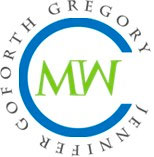Guest Post: Cat DiStasio’s tips for finding the best potential interview sources
Note from Jennifer: Finding people to interview for content marketing stories can be a PITA, not to mention really time consuming. To save my sanity, this is one task I often outsource to my virtual assistant, and she always comes back with a list of great options – including contact information. In today’s guest blog, Cat DiStasio outlines her process for researching and identifying the best potential interview sources. She shares more advice for freelancers on her website, so make sure you check it out after you read this post.
 By Cat DiStasio
By Cat DiStasio
One of the keys to good content is good interviews, and good interviews depend on good sources.
In content marketing, finding good sources to interview may be a cinch for some assignments, and a giant pain for others. Sometimes, clients will provide names of the sources they want you to interview, and that makes the job of a content marketing writer a lot easier. If your client doesn’t serve up a source on a silver platter, you’re on your own.
Don’t panic.
Identifying potential sources for writers to interview is one of my super powers. My background in journalism and research have helped me hone a process to zero in on the best types of sources, and I’ve discovered that it’s not rocket science. I’ve coupled those findings with my innate Google Fu to create a three-step guide for finding the best potential sources for your assignment. But, before you even think about hitting the search engine, you want to cover these bases:
- Make sure you understand the objective of the deliverable and the intended audience. If you have any confusion or unanswered questions about the main objective of the piece, you usually won’t have enough information to inform your search for potential interview sources.
- Ask your client for any requirements of the source. For the most part, they won’t want you to use a source that is linked with a competitor. They may prefer an academic source, such as a professor. Perhaps they only want C-suite sources in a specific subcategory of their industry. Ask open-ended questions to gather as much detail as you can.
- Decide how many sources you need to interview. You’ll want to come up with two or three times as many potential sources, to account for those who don’t respond, aren’t available, or simply aren’t a good fit. If you need to interview two sources for an assignment, expect to create a list of at least five or six potential contacts.
At this point, you will have a pretty clear idea of the types of people your client would be thrilled to include. Now, all you have to do is find those people. This is where many writers suffer from anxiety or paralysis, but these three steps will simplify the challenge.
How to identify strong potential interview sources:
1. Search for professional organizations, industry associations, and other types of topic-specific groups relevant to your assignment.
Oftentimes, these groups will have a pre-made list of media contacts for journalists and other types of writers to contact. Others may use working groups, and will often list the chairs of those groups on their websites with a mini bio. (If they don’t have either of these options, they will most likely have a media relations or PR contact you can email to ask for source referrals.)
2. Search for articles on the topic you’re covering, along with words like “expert” and “researcher.”
Look for people who are quoted or whose work (especially books or academic research) has been cited. This will uncover independent experts as well as university professors and researchers, who can make great sources (and their contact info is typically very easy to find). You may not want to interview the same person everyone else is talking with, but the flip side is that, if a person has been widely quoted, they are probably going to be a high-caliber source.
3. Search for your topic, along with words like “author,” “speaker,” and “consultant.”
The search results will be mixed, but you can evaluate the results by thinking about the questions you need to ask of your ideal source, and whether each person you find might be able to speak to that issue or angle.
Once you’ve completed these three steps, repeating as necessary for different variations on keywords, you should have a good list of potential sources. Getting in touch with them may be another challenge, but at least you’ve conquered the first phase of your search.
Most people who are accustomed to being interviewed by writers about their professional expertise will make it easy for you to contact them. It’s not unusual for these experts to display their email addresses and office phone numbers publicly on the web, especially for academic sources. If you’re chasing down an independent source, their specific email address may be more difficult to find, but tools like Hunter may help. Don’t shy away from using the contact form on an expert’s website, either, as that can sometimes be their preference.
Hopefully, these tips will help you not only find better sources, but also cut down on the amount of time you spend searching for them and communicating with them.
What’s your biggest challenge when it comes to finding potential interview sources? Do you have any other questions for Cat about the process?


Another gem-filled blog post, Cat. There are some great time-saver tips in here that I hadn’t thought of using before. Thanks!!
Thanks for that feedback, Holly! So glad to hear it.